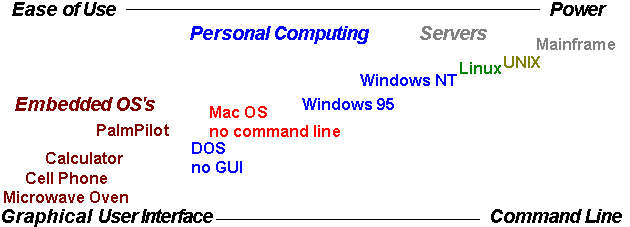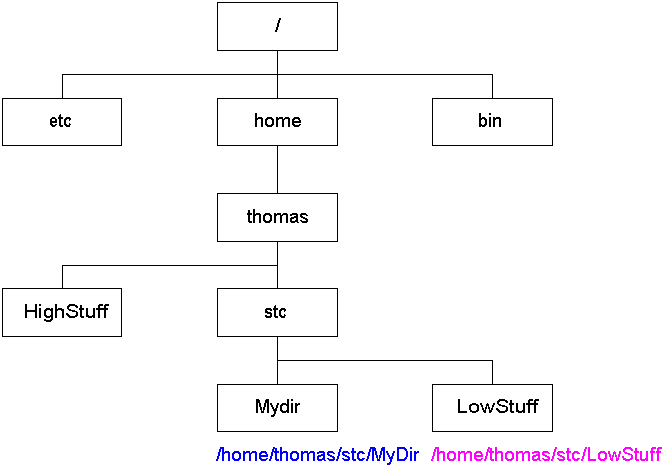UNIX culture
- decentralized, impartial peer review fosters
quality and reliability--the creative anarchy of the open bazaar versus the sterile
centralization of the closed cathedral
http://www.oreilly.com/catalog/cb/
- a culture of text, not pictures (Windows):
"UNIX as Literature":
http://www.performancecomputing.com/features/9809of1.shtml
- open source movement, GNU, copyleft
- crazy quilt of contributions from research labs,
universities, corporations, and private individuals
- cryptic, idiosynchratic naming
"conventions"
- straightforward: clear, find, sort,
compress/uncompress, mail, script, which, vacation, who, whoami
- shorten: man, cal, cat, diff, cmp, spell, telnet,
passwd, cp, mv
- acronym: cd, ls, pwd, mkdir, rm, rmdir, ftp, tar,
vi, grep, egrep, fgrep, df, du, ps, su, rlogin
- metaphor/metonymy: tr, at, more, unique, strings,
nice, top, touch, kill, bang (!), splat or star (*)
- contrast: more vs less; head vs tail; pine vs elm,
Bourne shell vs bash (born again shell)
- resort to foreign language (apropos)
- multiple, inconsistent meanings for common symbols
(/, $, ., @, &)
- chronological history of Unix, up to an including
Linux
Implementations/Variants/Flavors [nuances, history of AT&T, Berkeley BSD, Sun
Solaris]
http://www.wordesign.com/unix/chronology_of_the_unix_world.htm
- Unix is a registered trademark of The Open Group (Sun, Fujitsu Siemens, HP, IBM, etc.),
formerly the X/Open Company http://www.unix-systems.org/trademark.html
and used to belong to Bell Labs/AT&T, then Novell.
|
Thomas |



